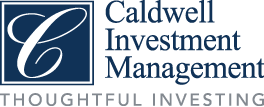Markets in Q2 continued to add to the strong gains seen in Q1 2019. While trade related concerns and the feared impact on global growth have not changed from when markets were significantly lower in Q4, the big change in investor sentiment is driven by the changed attitudes of central banks and governments globally. It seems they, too, are now concerned with slowing global growth and have shifted from tightening to easing policies. In the U.S. FED’s case, the reversal in rate intentions has been significant: after raising the funds rate by 100 basis points in 2018, the FED is now talking about lower rates, with the market now pricing in over 75 basis points of rate cuts over the next twelve months. We are currently living in a bizarre environment where weaker economic news is greeted by a stronger stock market as it means central banks will remain accommodative. It seems that a Goldilocks scenario, where the economy is neither too hot nor too cold, can continue to support markets; in this environment, however, we believe it is more important than ever to invest in high quality management teams that can successfully navigate the uncertainty. As our long-time readers know, management is one of the four key pillars on which we assess an investment opportunity.
Taking it down to the portfolio level, our core investment principles have not changed: protect and grow our investors’ capital through discounted valuations, strong balance sheets, high quality management teams and attractive business environments. We did well in Q2 to have more exposure to the U.S. market as it once again out-paced Canadian returns and continued to do well having our largest weighting in Technology. Security selection in Consumer Staples contributed favourably, driven by Tyson Foods and Premium Brands. This was offset by unfavourable security selection in the Industrials and Materials, driven by Bird Construction and Berry Global.
The portfolio showed strength in Q2 with 62% of its holdings out-performing the TSX Index return. Top performers were Broadridge Financial Solutions (“BR-us” +23.1%), TE Connectivity (“TEL-us” +18.6%) and Tyson Foods (“TSN” +16.3%). Broadridge released a solid Q1 earnings report as it continues to leverage its leading positions in proxy voting and post-trade management and sees significant growth opportunity to expand service offerings in the wealth management industry. We like Broadridge’s business as it is mission-critical, resulting in a sticky customer base and strong competitive moat. TE Connectivity is a world leader in highly engineered connectivity and sensor solutions. Its Q1 results were better than feared with management raising full-year guidance as it delivered strong content gains in a cyclically challenged auto market. Despite near term headwinds from auto, the company will continue to benefit from secular electrification and connectivity trends within the transportation, industrial, medical and communications industries. Tyson is benefiting from strong protein prices stemming from the African Swine Fever that has wiped out a significant amount of China’s pork supply. The company is also lapping higher input costs from 2018, which is allowing investors’ focus to shift back to the company’s ongoing transformation from a commodity to value-add producer.
Three stocks were added to the portfolio in Q2: Quest Diagnostics (“DGX-us”), Premium Brand Holdings (“PBH-t”) and Raytheon (“RTN-us”).
Quest is the world’s largest provider of diagnostic testing, providing services from routine blood tests to complex gene-based and molecular testing. 100% of revenue comes from the U.S. The company’s services are ubiquitous within U.S. healthcare as it serves 50% of all U.S. hospital systems, 50% of U.S. physicians and touches 1/3 of all U.S. adults annually. While a changing U.S. healthcare landscape is creating uncertainty, especially as U.S. elections ramp up, the shift to value-based care plays well into DGX’s significantly lower price points and service capability, both of which are driven by the company’s scale. This should accelerate DGX’s market share gains, which currently sit at only 10% of the total market, as evidenced by recent wins with large national payer networks. We initiated a position when the stock was off nearly 20% from its high and trading at an attractive free cash flow yield. We also like the stock’s defensive qualities as the business is largely recession-proof.
Premium Brands owns a portfolio of specialty food manufacturing and food distribution businesses with a focus on specialty products in protein and seafood. 73% of revenue comes from Canada and 27% from the U.S. The company is benefiting from 3 secular changes in consumer behaviour: the shift to more protein in the diet, clean-label eating (no unknown ingredients) and on-the-go eating (Fun Fact: Premium Brands supplies sandwiches to Starbucks to help it offset labour cost inflation). Over the last 5 years, the company has generated 20% annualized revenue growth and nearly 40% annualized EPS growth. Significant growth runway remains both organically and through M&A (which is a big part of the strategy) given only $3B in revenue today. The 5-year plan is to grow to $6B in revenue, most of which will come from the U.S. We initiated a position when the stock was off nearly 40% from its high. Subsequent to our purchase, the company announced a $200 million strategic investment by the Canada Pension Plan Investment Board which leaves the company well funded to execute on its strong pipeline of growth opportunities. We also expect this position to exhibit defensive qualities through an economic downturn.
Raytheon is a defence contractor that helps countries protect their borders and national interests through its missile & missile defence systems, radars, optical sensors and communications systems. The U.S. government is the largest customer, representing 68% of direct sales; however, much of the company’s growth is coming internationally with countries like Japan and Switzerland on multi-year programs to ramp up their threat defences. With the move towards populist governments and policies around the world, coupled with anemic global growth and high debt levels, it seems reasonable to expect that geo-political uncertainty will remain heightened. Subsequent to our purchase, Raytheon announced a mega-merger with United Technologies, a leading player in the aerospace market. While this merger will take time to play through – and will likely cause some volatility in the stock – we believe the underlying fundamentals of both businesses are attractive.
Looking forward
We have talked about market volatility increasing in past notes and investors have certainly experienced this in recent months. While our investment principles are designed to protect and grow our investors’ capital, we are not immune to the market’s volatility. As such, cash planning becomes important. The reason we avoid companies with weak balance sheets is because they have a higher risk of being forced into actions that destroy shareholder value. Similarly, investors that know they need cash in the next year or two should probably avoid having that money invested in equity markets – you don’t want to be forced to sell stocks should the market become depressed. This is where communication between investors and their Investment Advisors is critical.
All data is as of June 30, 2019 unless otherwise indicated. The information contained herein provides general information about the Fund at a point in time. Investors are strongly encouraged to consult with a financial advisor and review the Simplified Prospectus and Fund Facts documents carefully prior to making investment decisions about the Fund. Commissions, trailing commissions, management fees and expenses all may be associated with mutual fund investments. Rates of returns, unless otherwise indicated, are the historical annual compounded returns including changes in unit value and reinvestment of all distributions and do not take into account sales, redemption, distribution or optional charges or income taxes payable by any unitholder that would have reduced returns. Mutual funds are not guaranteed; their values change frequently and past performance may not be repeated. Publication date: July 15, 2019.
12303168464egw4gwe4g
-
Oksana Poyaskovahttps://caldwellinvestment.com/author/oksana/
-
Oksana Poyaskovahttps://caldwellinvestment.com/author/oksana/
-
Oksana Poyaskovahttps://caldwellinvestment.com/author/oksana/
-
Oksana Poyaskovahttps://caldwellinvestment.com/author/oksana/

